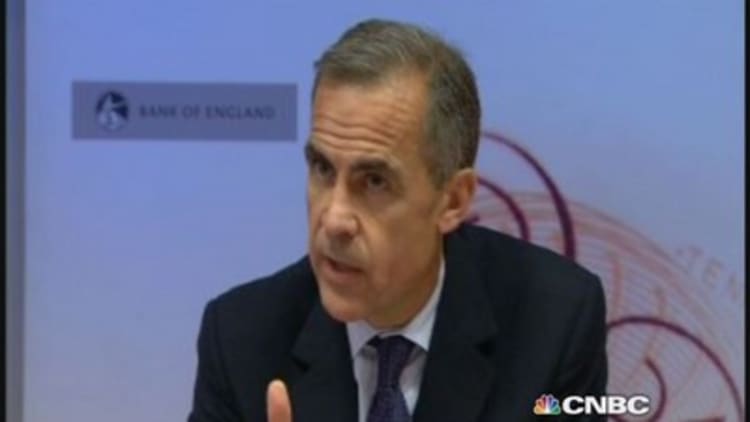Warning that Europe is falling into a "stagnation trap", leading French and German economists proposed a package of reforms and investment initiatives on Thursday to revive growth in the euro zone's two biggest economies.
The economists were commissioned to do the report by both countries.
Read More
Henrik Enderlein, of Germany's Hertie School of Governance, and Jean Pisani-Ferry, head of the France Strategie government think-tank, offered an implicit trade-off between shaking up the rigid French labour market and regulated professions, and a public investment boost in creaking German infrastructure.
"The biggest danger we see right now is a period of window dressing where lip service is paid to grand projects and reforms, but no real steps are taken," they said, noting both countries face elections in 2017 and there was no time to lose.
"Europe cannot afford to disappoint again, neither economically nor politically," they said.
The reform proposals for France broadly mirrored measures Economics Minister Emmanuel Macron has outlined to ease constraints on employment and open sectors to more competition without embracing more radical ideas such as scrapping the 35-hour work week or cutting unemployment benefits.
Read MoreEU lawmakers vote to break up Google
However, although Macron and his German counterpart Sigmar Gabriel commissioned the report, the French ministry distanced itself in advance from the findings, stressing it was not a government reform plan and the proposals were not binding.
The report called for French wage negotiations to cover a three-year period, as in Germany, rather than being annual; for companies in difficulty to have more scope to negotiate with unions on short-time working, pay and jobs; and to make the cost of layoffs more predictable and remove legal delays.
It said the unemployment insurance system was not working but it did not propose specific changes. It also said France should aim to bring public spending below 50 percent of gross domestic product from 56.5 percent in 2014, but set no deadline.
It recommended linking increases in France's minimum wage to productivity gains instead of the average wage rise.

Germany Changes
As for Germany, while apparently more successful, it faces serious long-term challenges due to a rapidly ageing and shrinking population and protracted underinvestment, the authors said. Berlin should do more to promote full-time employment for women and prepare for a large inflow of migrants to staff factories and offices.
"In contrast to France, where reforms are urgent and specific, the German reform needs are more fundamental in nature, requiring societal transformation and will likely need considerable time for implementation," they said.
They advocated a point system to attract skilled migrants and an automatic right to a work permit for anyone with a German higher education degree.
Read MoreEuro zone business output fails to meet forecasts
The German government should have a rule obliging it to adopt a consistent balance-sheet approach to public finances with a minimum threshold for investments, they said.
Berlin should boost public investment by 24 billion euros in the next three years - more than twice the government's planned figure - and create a "German Future Fund" of federal, state and municipal authorities to drive public-private partnerships in energy, digital and transport projects.
The report also suggested setting a price corridor for carbon, with minimum and maximum levels, to fix the EU's broken emissions trading system and create incentives to accelerate the transition to renewable energy sources by replacing old plant.
Read MoreEurope's economic dilemma
Follow us on Twitter: @CNBCWorld

